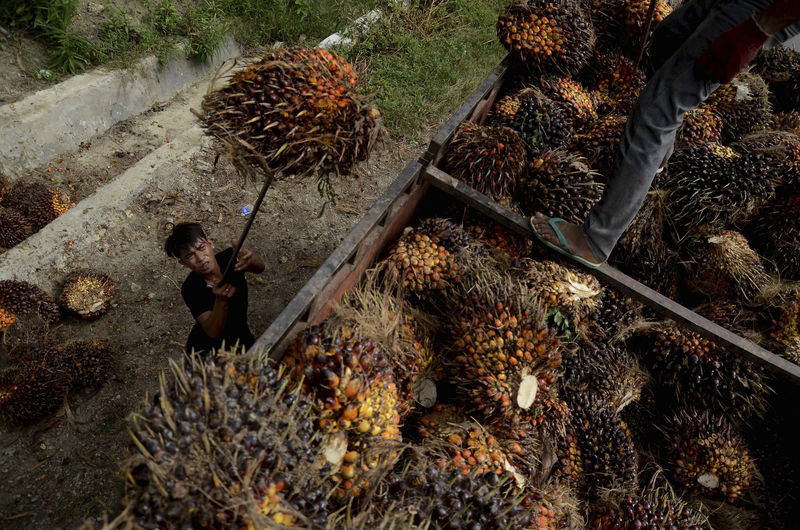JAKARTA (Reuters) - Indonesia on Thursday began testing biodiesel with a bio-content of 30% in cars, its energy ministry said, as the Southeast Asian nation pushes to boost local markets for its vast palm oil crop.
The world's top palm oil exporter aims to make it mandatory for all biodiesel to have a 30% bio-content, known as B30, from next year, up from 20% now.
Industry experts have said that could push consumption of bio-content made from palm oil to as much as 9 million kilolitres (KL) per year, up from an estimated 6.2 KL in 2019.
The test will be conducted over the next four months with various passenger vehicles and trucks, Dadan Kusdiana, head of research and development at the Energy and Mineral Resources Ministry, told reporters on Thursday.
The passenger vehicles will cover 50,000 km (31,000 miles) and trucks 40,000 km during the road test, Kusdiana said.
The ministry also plans to start testing trains, ships and heavy machinery in the mining sector using the fuel.
To offset slowing global demand for palm oil, Indonesia has been pushing to increase domestic consumption of the commodity, used in products ranging from fuels to soap. Nearly all the country's biofuels are made from palm.
